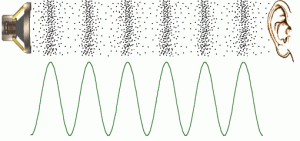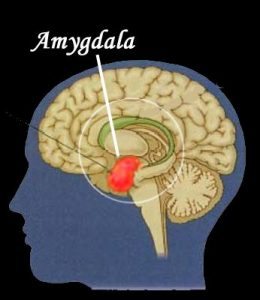Modern society is full of noises. Cell phones pings and dings, traffic horns and engines, and daily television exposure all come to immediate mind. It is a rare moment that we actually experience silence.
Noise
We are literally bombarded with noises nearly every hour of every day. What if you were to find that the lack of silence is actually damaging your brain?
“science is finding that “noise pollution” may very well dumb us down, compromise health and dramatically increase stress and the accompanying hormones.
Could it be possible that too much noise can ultimately make us ill? Interestingly, the root definition of the word “noise” is from the Latin definition nausea, or to feel sick. Did our ancestors know something about noise that our modern society has failed to see?

Noise Sickness
According to Nautilus, a nineteenth century nurse, Florence Nightingale, was quoted as saying, “Every careless clatter or banal bit of banter can be a source of alarm, distress, and loss of sleep for recovering patients”. She said that sudden noises have been cited as the cause of death among sick children. To her, noise makes people more sick. Silence makes them more well.
“Unnecessary noise is the most cruel absence of care that can be inflicted on sick or well.” – Florence Nightingale
Her statements were corroborated by scientific research in the mid twentieth century when multiple studies showed chronic noise exposure resulted in an increase of illness including heart disease, sleep loss, and high blood pressure.
It makes sense that sound could affect our health. Sound waves are a physical force that actually cause vibrations in the hairs and bones of our ears. We have all felt the vibrations of a strong base drum at a live music concert. Sounds waves are not visible, but they are certainly something we can feel.

Once our ears detect the movement of sound, the small cochlea takes those vibrations and converts them to electrical signals for the brain to translate and process.
Stress from Noise
According to Daniel A. Gross those electrical signals stimulate the amygdala portion of your brain, which is associated with memories and emotions. When the amygdala is triggered, hormones are released, including the stress hormone Cortisol.

When our body is releasing stress hormones chronically due to chronic noise, we experience adrenal fatigue, weight gain, blood sugar issues, headaches, body pain, and more. So if you are feeling stressed out or sick, maybe the level of noise you are surrounded by has contributed to your issues.
Silence and the Brain
In 2013 a study was done on sound and mice. The researches found that the most profound effect on the brain was none of the sounds they were exposing the mice to, rather the silence in between the sounds.
“two hours of silence per day prompted cell development in the hippocampus, the brain region related to the formation of memory, involving the senses.”
These new brain cells then turned into neurons that were integrated into the brain’s functionality itself. This is particularly interesting for patients who suffer from symptoms of dementia, which indicates a loss of brain cells and functionality in the hippocampus. These preliminary findings open the door for further research into the therapeutic use of silence in degenerative diseases.
The results of the study on mice mirrored a similar study on humans. As people listened to relaxing music, the researchers noticed an unexpected phenomenon – the brain scans of the test subjects indicated a greater response to silence in between the songs than during any of the music they played for the individuals.
The impact of the music could be found in the bloodstream of the test subjects. The changes were similar to the conditions of arousal.
Instead of discovering a type of music that brought relaxation, the researchers found that silence actually relaxed the test subjects in a way that none of the music did.
Please see this article: https://www.betterhelp.com/advice/therapy/ for further information from BetterHelp on Advice and Therapy.
Brain Development in Children
These studies make me wonder about the modern educational and stimulating toys we have for babies. Are we in fact delaying or changing the development of brains by over-exposing them to sound stimuli? I know there is something special about seeing a child quietly playing outside instead of interacting with high-tech gadgets.
Studies have shown that exposure to chronic noise does in fact affect school age children. When an airport in Munich was relocated near a school, researchers found that the children’s brains released a stress hormone that allowed them to tune out the constant noise. The major issue with the situation, is that the children began to tune out ALL types of sensory inputs, not just the sound of the planes. It greatly affected their ability to pay attention in the classroom, even if the children stopped actively noticing the noise on a conscious level.
Noise Recovery
So you have been over exposed to noise, what can you do to mitigate the damage done to your brain? Japanese researchers have found that leaving the hustle and bustle of modern society and engage in in a practice called “forest bating” or Shinrin Yoku, can actually mitigate the effects of long term noise exposure.
Qing Lim, Senior Assistant Professor at Nippon Medical School in Tokyo, conducted two studies that involved people spending three days in nature. Blood tests were taken before, during and after the “forest bath”, and the results were astounding!
Blood tests revealed a higher count of anti-cancer fighting cells in the blood, and participants reported lower levels of stress, anger, and hostility. The affects lasted up to thirty days after the trip to the forest. Follow up studies showed similar results for day long trips to the forest, giving a seven day boost in immune system functionality.
Give your brain a break from the sound stimulus of modern society, and take a forest bath once a month for the optimal benefits.
If you cannot get outside, you can at least make intentional quiet time in your life. Studies have shown that simple silence can help your brain to recover from sensory overload.
Sources:
- http://nautil.us/issue/16/nothingness/this-is-your-brain-on-silence
- http://www.zengardner.com/power-silence-rewire-brain/
- http://wakeup-world.com/2015/03/18/healing-body-and-soul-through-the-japanese-art-of-shinrin-yoku/
- http://www.lifehack.org/377243/science-says-silence-much-more-important-our-brains-than-thought
- http://www.wienerzeitung.at/_em_daten/_wzo/2015/08/07/150807_1710_kaplan_s._19951.pdf
- http://www.apa.org/monitor/2011/07-08/silence.aspx



